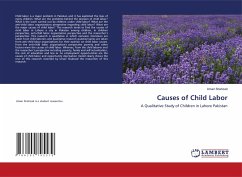
Black Diplomacy
Versandkostenfrei!
Versandfertig in 6-10 Tagen
41,99 €
inkl. MwSt.

PAYBACK Punkte
21 °P sammeln!
At the institutional level, racism by consequence tends typically not to be recognized by 'black' Africans, and may not necessarily be triggered by intent. Racism by consequence, then is reflected in differential educational opportunities, economic differentials between blacks and non-blacks, residential segregation, health care access, and death rate differentials between blacks and non-blacks. As social facts, both "race" and blackness define real situations in African society; and, as real situations, both "race" and blackness issue into real social consequences. The concept of 'Black Diplo...
At the institutional level, racism by consequence tends typically not to be recognized by 'black' Africans, and may not necessarily be triggered by intent. Racism by consequence, then is reflected in differential educational opportunities, economic differentials between blacks and non-blacks, residential segregation, health care access, and death rate differentials between blacks and non-blacks. As social facts, both "race" and blackness define real situations in African society; and, as real situations, both "race" and blackness issue into real social consequences. The concept of 'Black Diplomacy' captures the idea that racism in Western societies is a form of subordination met by diplomacy, of one racially-identified group (Blacks) over others. As such, Black Diplomacy captures the reality that racism operates, in part, as a process that is constantly re-established by Black agents (consciously/ unconsciously), acting within societal frameworks that encourage and facilitate this re-enforcement of an unequal, racist status quo. It is freedom from this level of violence that separates one race from all of the rest, marking how blackness gives a kind of freedom, safety, anonymity.












